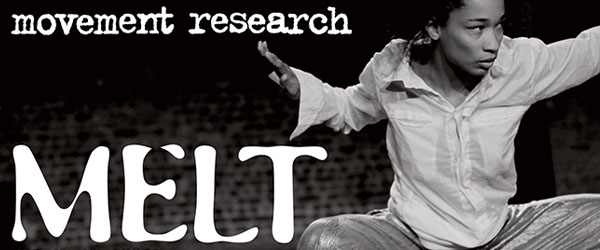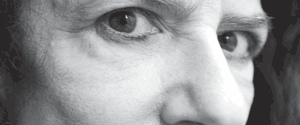Critical Correspondence
- irony, Last Meadow
- Comments Off on Performa 09: a sincere proposal for thinking about irony
- Writings
- 11.19.09
Performa 09: a sincere proposal for thinking about irony
by Karinne Keithley
Ursula’s post on Art History with Benefits passes through a performance position I’ve been trying to wrap my head around for a while, viz. the so called new sincerity. My questioning around sincerity began in my own performing, during a glacial process of answering a call I perceived, to make something of my own outward facing that I have variously thought of as a form of transparency and a form of care. Rejecting all forms of role-taking, I found myself making a practical argument for radically plain doing. The first step in this direction from, say, the more sincere engagements with what we can paint most clearly as cliché (the smiling ballerina, the emoting dramatic Graham dancer) is one that might be from a kind of impersonation, to the impersonal. Those of us trained in a modern dance that marks the Judson Church as its site of renewal would call it task-oriented. The call I referred to earlier was one I understood as a performance ethic: to rediscover the personal in the now habitual ground of the impersonal, as an offering of my own person. I reconceived the task of performance as a promise to offer an unclouded, unguarded opening, to instantiate a channel in which I would try to circulate myself. The circulation, not the exposure, transformed the project into an economy that was unsustainable at best, perversely selfish at worst, and in protracted practice, somewhat devastating. So I quit performing.
I said this was a proposal for thinking about irony, and I think I started thinking autobiographically because the place I first learned to perform this way was actually in my side act, in which I sang covers of Zeppelin songs on the ukulele, an ostensibly ironic thing to do. If the investigation had remained in the protected unseriousness of the side act, I probably wouldn’t have quit. This brings me to what I want to propose, as a further development of Ursula’s statement that “irony makes a protected space for sincerity.” I wonder if the achievement of actual sincerity in the utterance of a common (popular) holding (like, say, Led Zeppelin’s “Black Dog”, or Jerome Bel’s use of the iconic Titanic pose in “The Show Must Go On”) is something completely other than the drippy self-congratulating earnestness we might stereotype as the sincere, or the vitiating self-sacrifice of unidirectional exposure. To expose ourselves saying “I mean this” at the same time as saying “I love this” effectively rewrites the polarity of irony (whether dramatic irony wherein we know something the character doesn’t, or fashion irony wherein we wear what is held to be most awful). It becomes something like saying, and meaning, I am You. Instead of a space of protection, I see it as a place of common inhabitation, though one always potentially endangered by the possibility that we are ashamed of our commonness.
Two further thoughts:
One, If the love isn’t real, then the irony is deployed in the degraded way people usually think of as ironic: that protectionism of the postmodern condition that protects itself from wagering any belief at all. This is a kind of fraud, and is furthermore pretty boring.
(One-A: love can be severe; I’m not arguing for a Hallmark movement.)
Two, The best and most astonishing act of this sincerity I have been lucky enough to witness lately was Miguel Gutierrez’s Last Meadow, particularly Michelle Boule’s James Dean (passim) (and it’s no accident that Gutierrez’s attraction to Dean is as an avenue to the national, not as a thing to be critiqued fromthe outside but as a common holding, self-critically engaged), and Michelle, Tarek, and Miguel singing—what was it, a Pet Shop Boys? Depeche Mode?—some song that almost killed me. RoseLee Goldberg, you should book Miguel for Performa 11, for my money.


